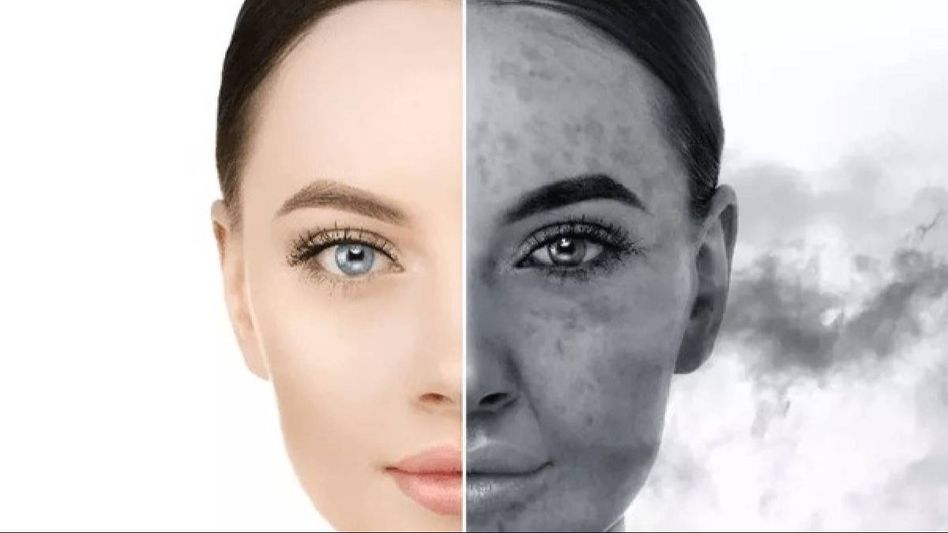Air pollution: How to repair skin and restore the glow?
Shield your skin from AIR Pollution & sweep away free radicals with basic skin care regime for resilient and radiant skin

One of the most pressing issues that India is facing today is air pollution. Rising ambient air pollution has created havoc on the health front and caused early deaths. There has been an upsurge in the incidences of cardiovascular, respiratory and skin diseases due to exposure to fine particulate matters (PM).
PM is composed of Carbon monoxide, Sulfate, Nitrate, black carbon, Ammonia, Benzene, Toluene, Ethylbenzene, mineral dusts, and Xylene. These are heterogeneous mixtures of solid particles and liquid droplets that are suspended in the air. Based on the particle size, PM can be categorized into coarse particles (PM10), fine particles (PM2.5), and ultrafine particles (PM0.1).
For a person to stay healthy, the recommended Air Quality Index (AQI) is below 50. Unfortunately, Guwahati stands at 325 and falls in the severe category with real-time air pollution PM2.5 (125.2µg/m³) and PM10 (199µg/m³).
This is of great concern as repetitive and prolonged exposure to air pollution can cause irreparable damages to our skin, which is the largest and outermost organ of the human body and functions as the biological shield.
PM directly causes epidermal injury and impairs skin barrier indirectly through systemic inflammation and oxidative stress. It contributes and exacerbates certain skin conditions such as Atopic Dermatitis (hyper allergenic state), Psoriasis and Eczema (auto-immune conditions), some pre-Cancerous skin conditions and Skin Cancers which needs immediate medical attention.
Heavy particulate matters (PM10) aggravate skin inflammation through differential expression of genes controlling skin barrier integrity and immune response.
The air pollution induced dermatoses also include acne, fungal, bacterial and viral infections, allergic contact dermatitis and airborne contact dermatitis.
The penetration of PM into the skin through hair follicles and sweat ducts also causes extrinsic skin ageing and hyperpigmentation.
There are certain preventive and precautionary measures that can protect the skin from the detrimental effects of air pollution such as staying indoors when the air pollution level is high, using indoor air purifiers and wearing masks while going outside.
To maintain good and healthy skin, it’s important to eat a diet rich in Vitamins, minerals and antioxidants, and to consume plenty of water to keep the body and skin well hydrated. Adequate sleep and daily exercise also help in increasing the natural defense mechanism of the skin.
Skincare Regimen
• To build a shield against airborne pollutants, to restore radiance and to keep the skin surface clean and clear, using a mild and gentle cleanser is crucial. It also helps in avoiding flare ups.
• Emollients and Humectants which in general term is called Moisturizer must be applied to the face and body immediately after bathing and cleansing as it protects and repairs the skin from deep within.
• Ceramide, Hyaluronic acid, Glycerin and Panthenol based products are highly beneficial for the skin.
• Vitamin A, C and E based serums help in creating a barrier against pollutants.
• Applying a broad-spectrum Sunscreen even while staying indoors helps in protecting the skin from harmful UVA and UVB rays.
• Following these steps on a regular basis will contribute to balancing the microbiome for a healthy skin and make the skin less susceptible to damages.
Be vigilant of your environment, choose a sustainable lifestyle and consult your Dermatologist to treat and protect the skin from the effects of air pollution.
Copyright©2026 Living Media India Limited. For reprint rights: Syndications Today









